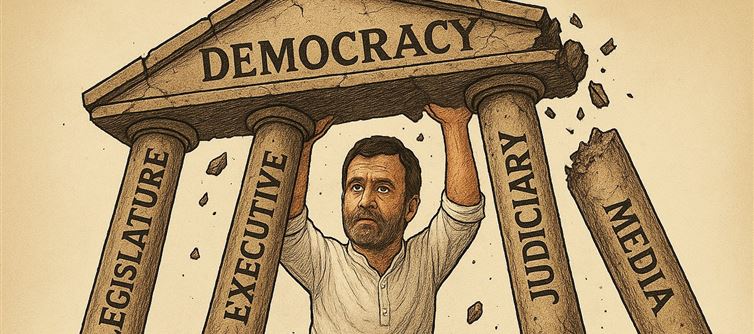
Picture this: rahul gandhi walks onto the political stage with a sharp accusation—he points at the election commission and says, “You are not the referee, you are playing for the other side.” For once, the spotlight doesn’t dim. According to the C-Voter survey, six out of ten indians in the audience nod and whisper among themselves, “He’s not just throwing mud—there’s some truth here.”
Now, enter amit Shah. The home minister doesn’t storm in with drama; he does what he always does—steady, confident, dismissive. His tone suggests: “Rahul crying foul is nothing new. This is just congress making excuses before losing.” Shah’s response isn’t about explaining, it’s about shrugging—like a cricket captain who doesn’t waste time answering a rookie’s sledging.
Here’s the twist, though: the indian audience is split in its gaze. For many, especially the urban chatterbox crowd, this feels like déjà vu. They’re sipping chai, scrolling news apps, muttering, “Same old drama, who cares?” To them, it’s background noise—like traffic horns in Delhi, loud but unremarkable.
But then there’s the other side—the silent voters in small towns, in villages, the 60% who say, “Wait, Rahul’s words aren’t hollow this time. Institutions should be neutral.” They’re not shouting, but they’re listening. And that subtle hum of agreement is what makes this more than just a political spat—it’s a potential undercurrent.
So the story is this: rahul fired a shot, Shah brushed it off, and the people? They’re not rioting in the streets over it, but they’re storing the memory. And in indian politics, stored memories sometimes decide who gets the final applause.




 click and follow Indiaherald WhatsApp channel
click and follow Indiaherald WhatsApp channel